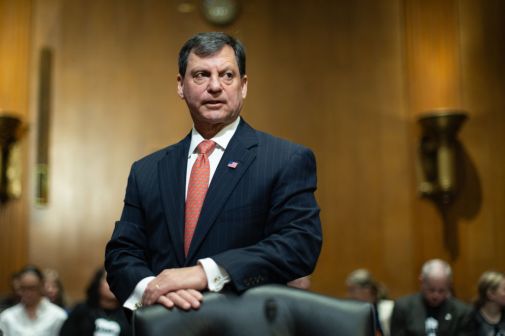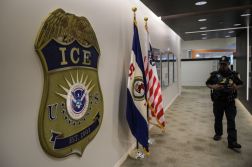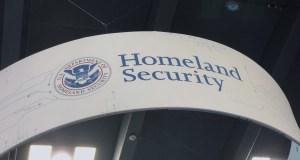Worry grows over Election Day cyberattack
There’s growing concern from experts and business executives about the possibility of a major cyberattack next week aimed at discrediting election results amid online chaos on the day most Americans will head to the polls.
At least one large news company has reached out to establish relationships with officials at the Department of Homeland Security so they know who they should contact in the event of a big internet outage or other major event on Tuesday.
“I spent most of [Wednesday] visiting with DHS …. because I have this very immediate need,” David Hahn, the chief information security officer for Hearst Corporation, told the Security Innovation Network showcase in Washington Thursday.
“I’ve got 33 TV stations throughout the country, 23 newspaper outlets and they’re all concerned about what the heck is gonna happen next Tuesday,” he said.
He said worries had intensified after last month’s DDoS attack that knocked popular websites offline for hours. “You can imagine [on election night] regardless of [the result] if you can’t see your local news outlets … the panic and the almost kinda craziness that will ensue.”
Later, briefing reporters at the same event, the man who fingered the Kremlin for the hacks of Democratic party emails warned that Russian intelligence agencies will try to discredit the election result.
“I believe the fundamental goal of the Russian government is to cause chaos in this election to weaken whoever gets elected president, because a weak American president is good for [Russian President Vladimir] Putin,” said Dmitri Alperovitch, co-founder and CTO of CrowdStrike.
He said the operation to hack the IT networks of the Democratic National Committee and the Democratic Congressional Campaign Committee — carried out by hacking groups linked to Russian intelligence — had begun before it was clear who either party would nominate.
“Based on our investigations, we have determined that certainly the intrusions and even the planning for the leaks started long before the nomination contests in either party had ended,” he said — making it unlikely that the objective had been to influence the outcome in favor of one candidate or another.
“It’s not over,” he added. “What worries me the most is what might be coming, which is likely an attempt to discredit the vote.”
He said it was “highly likely” that there would be social media claims that the vote was hacked somehow. He noted that Russian intelligence runs “Troll farms” of young hackers who cultivate fake identities on social media to spread Russian disinformation.
The likelihood of actual online interference with election counts “is zero,” he said.
Rather he said the claims would be part of a “psychological warfare operation launched by the Russians.”
“The battlefield is not the voting machines, the battlefield is the minds of the American electorate and [the goal is] trying to convince them — or at least a portion [of them] — that the vote is not legitimate.”
For his part, Hahn was cautious in describing what exactly led him to want to meet with DHS officials. “I’m looking at anybody and everything that’s possible,” he told CyberScoop after his panel.
He said a major concern was the need to get accurate information.
“You need to know what’s happening, what’s not happening,” he said. “Am I a target or am I just a casualty of what else is going on?”
He said executives often feared having little information in the early hours after a large scale internet outage struck “It’s hard to tell [what’s going on and what it means] — unless the news is reporting it. And guess what, we’re the news!” he said.






